Yeah, A Lot Of What Bothers Me About Fantasy Settings (especially D&D) Is That People Try To Run Wizards
Yeah, a lot of what bothers me about fantasy settings (especially D&D) is that people try to run wizards like they're academics, but their only exposure to academics is authoritative professors telling them The Truth, so they don't realize that all academics are always 5 seconds away from trying to strangle each other over questions like 'does time really pass or does it just seem to pass'
More Posts from Jjgaut and Others


So a free tool called GLAZE has been developed that allows artists to cloak their artwork so it can't be mimicked by AI art tools.
AI art bros are big mad about it.

Kinda of random but what do you think of Alan's Moore comments about people liking comic book movies could lead into fascism? Seems like bitter old man territory but what do you think?
I think it's fair to say that fascism has been something of an obsession of Alan Moore's and a recurring although not omnipresent theme in many of his works.
While Miracleman is technically an expy of Captain Marvel, I would argue that the series is Moore's most extended commentary on Superman instead and especially the idea of the ubermensch. In Miracleman, our protagonist is initially thought to have been made into a superhero by a benevolent enlightened scientist, but eventually we learn that Miracleman is the product of an Operation Paperclip Nazi science project called the Zarathusa Project designed to create the literal Nietzschean Ubermensch, complete with a fixation on "blond gods" and a eugenicist breeding program. A superhero fight in the midle of London causes mass civilian casualties on the scale of an atomic bomb going off. Ultimately, Miracleman effectively overthrows Thatcher's government and rules as an enlightened despot before eventually leaving Earth for space.
Likewise, I think Watchmen is Moore's most extended commentary on masked vigilantism and thus on Batman. In Watchmen, the phenomenon of vigilantism is repeatedly associated with right-wing politics: Hooded Justice is a German circus strongman who has pro-Nazi politics; Captain Metropolis wanted his superhero teams to target "black unrest," "campus subversion," and "anti-war demos;" and the Comedian is a brutal nihilist who ultimately joins the U.S security state where he cheerfully follows orders to assassinate JFK and Woodward and Bernstein, commit atrocities in Vietnam, kill protesting hippies, etc. Finally, there's Rorschach, Moore's most famous mis-interpreted creation - Rorschach is a paranoid conspiracy theorist who's an anti-communist, anti-liberal, militant and militaristic nationalist, homophobe, misogynist, and avid follower of the John Birch Society-like New Frontiersman.
And then there's V for Vendetta, which I would argue is Moore's attempt to create a masked vigilante superhero with his own anarchist politics. In this story, the vigilante isn't a crimefighter but rather a revolutionary who seeks the overthrow of a fascist state and the creation of an anarchist utopia.
Moreover, his more recent comments about comic book movies being linked to fascism are arguably just part of his much longer-running commentary that superheroes as a concept are at the very least proto-fascist.
Having read a lot of Moore's work and interviews on the subject, I don't find his critique compelling. I think his definition of fascism is far too loose, I think his lens on the superhero genre is overly narrow, and I think his mode of analysis tends to neglect the vital area of historical context.
Definitions
So let's start with Moore's definition of fascism. I think Moore tends to really over-emphasize the whole idea of the Nietzschean ubermensch and the use of force to solve problems, and more recently he's been on this weird kick of saying that nostalgia and a childlike desire for easy solutions leads to fascism. I have several problems with this definition:
the first is that, as I've talked about in the past, fascism is a very complex historical phenomenon that can't be boiled down to a single idea, and in particular the idea of the ubermensch is a pretty small part of the German case (and even then how do you balance it against Nazism's more anti-individualistic aspects, like the mass party and the mass party organization).
the second is that the idea of a larger-than-life individual using physical prowess to solve problems is not unique to fascism. After all, during the 30s, you also had the Soviet Union promoting the heroic ideal of Stakhanovitism and the depiction of the heroic male factory worker in socialist realism. More importantly, the idea of a "larger-than-life individual using physical prowess to solve problems" is basically the same description for any number of literary figures from pulp cowboys to the Greek heroes of the Iliad and the Oddessy to the epic of Gilgamesh.
the third is that I think Moore's definition overlooks the actual drivers of the rise of contemporary fascism. Anti-semitism, racism, homophobia and transphobia, misogyny - all of these are real social and cultural forces that are actually motivating people to join the ranks of the alt-right, to commit massacres, to riot at the Capitol, and so forth. It is incredibly self-involved to think that superheroes and superhero movies are worth discussing in the same breath. At the end of the day, they're harmless entertainment compared to the real political issues that need to be tackled.
Moore's Model of Superheroes
Here's where I'm going to say something that's going to be a bit controversial - I don't think Alan Moore has read widely enough in the superhero genre to make an accurate assessment of its relationship to fascism. If we look at his comics work, and we look at his writings, and we look at his interviews, Moore's mental model of the superhero really only includes two figures, Superman as the representative of the superpowered ubermensch and Batman as the representative of the masked vigilante crimefighter. Notably, Moore hasn't really touched the last of the Big Three - Wonder Woman, a superhero with a strong legacy of radical left-wing politics. I do think we have to mention, given Moore's somewhat troubled history when it comes to issues of gender, that Moore's model of the superhero doesn't include any female superheroes (or for that matter, any superheroes of color or queer superheroes). (EDIT: I should clarify - Promethea is Moore's version of Wonder Woman, but she doesn't really come up in his discussions of fascism, and her thematic profile has more to do with Moore's interests in magic.)
And other than Captain Britain, Moore never worked with any Marvel character and basically ignores them.
To me, this is like having a career as a painter and never working with colors. Moore's model of the superhero leaves out the Fantastic Four and how their flawed psychologies revolutionized the industry and the whole idea of the superhero-as-explorer, it leaves out Spider-man and the idea of the superhero-as-everyman who's central struggle is about work-life balance and altruism, and most importantly it leaves out the X-Men and the idea of the mutant metaphor.
If as a critic you're going to make grand pronouncements about something as morally evil as fascism, I think it really is incumbent on you to have read and analyzed wildly rather than cherry-picking a couple of case studies. Especially if you have something of a tendency to mis-characterize those case studies by ignoring historical context.
Historical Context
So let's talk about Superman and Batman and their emergence in the 1930s. One vital bit of context is that the U.S experienced a significant crime wave in the 1920s and 1930s as Prohibition encouraged the rise of organized crime and then the Great Depression spurred the rise of kidnapping and bank robbery gangs. Moreover, municipal police forces tended to be wildly corrupt, accepting bribes from organized crime to let them operate with impunity, while not letting up in the slightest in their brutal oppression of workers and minorities.
In this context, I think the idea of vigilantism - while it has an undeniably racist legacy dating back to Reconstruction - is not purely a conservative phenomena. It's also an expression of a desire for help from somebody, anybody when the powers that be are of no help. And at the end of the day, unsanctioned use of force can equally be traced back to left-wing self-defense efforts from the Panthers back to the Communist Party's streetfighting corps to unions packing two-by-fours on the picket line - so I don't think we can simply equate punching a bad guy with racist lynch mobs and call it a day.
So let's talk about Superman and the ubermensch. I think Moore has a bad tendency to focus on his nightmare scenrio of a godlike being tyrannizing and destroying hapless humanity, while minimizing the actual ideas of Siegel and Schuster. He tends to take their use of the Nietzschean as a straighforward invocation instead of the clear subversion it was intended to be - rather than a blond god who imposed tyrannical rule with horrific violence, Siegel and Schuster made their Superman a dark-haired Moses allegory, who rather than solely fighting crime acted to stop wife-beaters, war profiteers, and save the life of death row inmates, and whose secret identity was of a crusading journalist who uncovered corrupt politicians.
To be fair, Alan Moore admits that Superman started out as "very much a New Deal American” - but because this kind of does near-fatal damage to his argument, he quickly minimizes that by saying that Superman got co-opted and thus it doesn't count. This is some No True Scotsman bullshit - Moore knows that his example just imploded so he tries to wriggle out of it by arguing that Superman sold out to the Man. If we go back to the actual historical evidence, we can see that at the outset of the Red Scare, the Superman radio show went on a crusade against the Klan, and throughout the conservative 1950s, Superman was used to propagandize liberal values of religious and racial equality:

So much for selling out.
On the other hand, Batman is a tougher case, given that his whole deal is being a masked vigilante who wages an unending war on crime to avenge his murdered parents. So is Batman an inherently fascist figure, a wealthy sadist who spends his time brutally beating the poor and the mentally ill when he could be using his riches to tackle social issues? I would argue that this version of Batman is actually pretty recent - very much a legacy of the work of Frank Miller and then the post-9/11 writings of Christopher Nolan, Johnathan Nolan, and David Goyer - and that there have been many different Batmen with very different thematic foci.

For example, the early Batman was as much a figure of horror as he was of superheroics - he fought Frankensteins and Draculas, he killed with silver bullets, etc. Then in the 40s and 50s, you got the much more cartoony and light-hearted Batman who pretty much exclusively fought equally oddball supervillains in such a heightened world of riddles and giant pennies and mechanical T-Rexes that I don't think you can particularly describe it as "crime-fighting." Then in the 1960s, you have the titanic influence of the Batman TV show, where Adam West as Batman was officially licensed by the Gotham P.D (so much for vigilantism) and extolled the virtues of constitutional due process and the Equal Pay Act in PSAs and episodes alike. You can call the 1966 Batman a lot of things, but fascist isn't one of them.
Conclusion
I want to emphasize at the end of the day that I'm a huge Alan Moore fan; I've read most of his vast bibliography, I find him a fascinating if very odd thinker and critic, I've even tried to read his mammoth novel Jerusalem (which is not easy reading, let me tell you). At the same time, it's important not to treat creators, even the very titans of the medium, as incapable of error. And in this case, I think Alan Moore is simply wrong about fascism and superheroes and people should really stop asking him about it, because I don't think he has anything new to say about it.
#i like to sit around thinking about what life would have been like in the naberrie-skywalker household#padme would have been amazing when the twins were just little kids but when they hit puberty she’d be like ???#padme was a queen when she was 14; she couldn’t afford temper tantrums; she doesn’t understand any of this#and anakin stands up and he’s like MY TIME HAS COME#he is the chosen one prophecied to bring balance to this household#leia is the best at everything until anakin starts seriously training them and luke is a natural at Meditation and Jedi Stuff#and leia gets SO PISSED and luke’s like WHY CAN’T I BE BETTER THAN YOU AT ONE THING#and leia’s like WHY CAN’T YOU STOP RUBBING IT IN MY FACE#and then they yell incoherently at each other and padme’s like ????????? STOP???????????#she can get the senate to shut the fuck up and listen but she can’t get her 13yo twins to do the same#and then anakin walks in and starts yelling just as incoherently and padme’s like i’m leaving#but it works. whatever strange terrifying things they were all yelling at dinner everyone’s happy again#and padme’s like oh my god if politics were like this i’d kill all my coworkers#and anakin’s like hahahahahhahahaha.#and in another universe darth vader stops and stares out a window and he’s like huh. that was weird#‘it’s as if i felt padme again and we were in complete agreement on something’#and then he continues choking out an admiral#STAR WARS COMEDY
i really like looking at google image searches for “firemen rescuing cats” or something because you get super cute pictures like
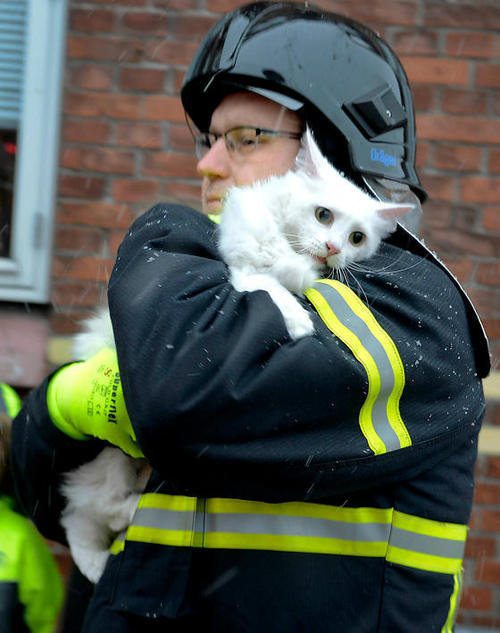


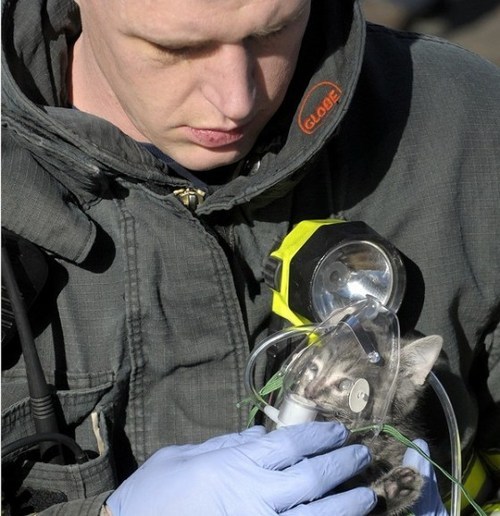
AND THEN THERE’S THIS ONE
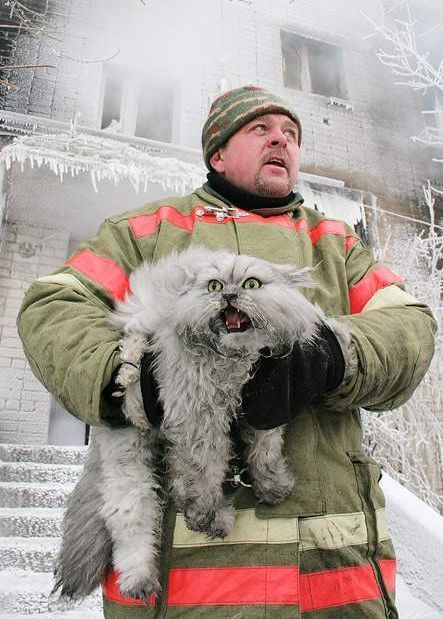
I should probably point out that I’m someone who likes the TV show, even if I think the books are largely superior, so we obviously don’t entirely agree on a lot of these points. (I do love your metas, Gotgifsandmusings, regardless of my enjoyment of the show; they’re consistently insightful and witty.)
As far as the Emmys go, a lot of it has to do with the nature of awards shows. Deserving winners get missed all the time because there’s competition that can’t be ignored. This is how you end up with awards that feel like “lifetime achievement awards” or whatnot.
So Game of Thrones Season 4, which (whatever its adaptational or sexism issues) really was spectacular television, lost all its awards to the final season of Breaking Bad, except for directing, which it lost to True Detective. Same thing for GOT Season 3, which, again, was terrific television. But it lost all of its nominations to other shows (including, again, Breaking Bad).
The thing is, no matter how great Game of Thrones was those years (and, again, as TV, it’s pretty great, and I think it improves on the books in a few areas, albeit definitely not in all areas), it was never going to beat Breaking Bad. There was just no possible way to ignore it.
And so when Season 5 rolled around, for all its flaws, it still tends to be entertaining and technically superb television when it wasn’t in Dorne or Winterfell (both plotlines were heavily criticized even among those who still love the show, and at least in the latter case, it’s certainly exceptionally well-made in a technical sense). And this time, there wasn’t a strong frontrunner to beat it (its competition is strong, but it’s not terribly obvious what the best choice there actually is), so it got all the awards it’s been nominated for all these years but never managed to actually win, even if it was the weakest season.
That’s just how these things work. Sometimes something wins that really deserves it -- Robert Donat won the Oscar for Best Actor in 1939 for Goodbye Mr. Chips. But he beat someone else who also really deserved it - Jimmy Stewart in Mr. Smith Goes to Washington. So the next year, Stewart won Actor for The Philadelphia Story, and while he’s great in that, should he really have beaten Chaplin, Fonda, and Olivier?
So this year, Game of Thrones took a couple of massive misteps, and badly exposed all its underlying flaws in really ugly ways. It’s also, often, compelling, complex, fun, and dazzling. So even if it isn’t those things to any consistent degree, it still represents enough of what’s loved about the show that it’s able to pull off a sweep when it’s not up against anything that can’t be beat.
And Winterhell helped win the show an Emmy... What a great message to send to viewers and creators... "If you want to make good TV and win what is considered the most prestigious television award, rape someone! Have shocking things that make no sense happen! Cynicism and everything sucks! DARKNESS! Oh and viewers who don't like this stuff and are triggered by it? FUCK THEM AM I RIGHT?" Ugh...
Is Winterhell what helped them win their Emmys? I mean it was just so, so, so bad.
I’m pretty sure everyone and their mothers got distracted by HARDHOME, the BEST HOUR OF TELEVISION (if we turn our brains off and don’t bother thinking about context or like…why are arrows stopping wights, or anything).
But like…I have to hope that’s what one them the votes. Because I think it is actually physically impossible to enjoy Winterhell. Then again, the finale won “best writing,” and the first 20 minutes centered on Satannis’s farcical defeat.
@itsalwayslydia said to gotgifsandmusings:Hey, so I just finished reading your post on Winterhell, which was so good it made me angry. (Not at you but at what’s happened to these characters for the purpose of TV ratings.) Anyways, I was wondering if you’d seen the Huffington post article where it’s pointed out that Theon is wearing Robb Stark’s outfit from the Red Wedding? Sophie Turner confirmed that was true on her Comic Con panel: “Just to make that a little more brutal.” Seven hells.
I had seen that, yeah. And like…that’s you know. Nifty that they wanted to use costuming to “make it more brutal.” But it also makes no fucking sense? Like, why in Seven Hells is he wearing Robb’s outfit? He’s not disguising himself as a Stark. Why isn’t that outfit full of arrow-holes? How did they even get that outfit? Was it when Sansa had passed out from the Xanax Batfinger gave her so she failed to notice them passing through the Twins?
But like, at least it wasn’t as horribly out of place as the sith lord and the dude with the conquistador helmet:

Anonymous said to gotgifsandmusings:What’s the proper way to compliment your Winterhell Retrospective? I enjoyed it? It made me angry about that whole plot line all over again? Anyway, it did make me angry again, but I also enjoyed it. I still fail to understand how professional writers of TV could put together such a stupid arc, they have huge books to help them!! Why do they think they are better at telling this story than GRRM? Why did they retcon the Others? Why can’t we call them the Others, instead of the white walkers? ???
Well one quick correction: they don’t think they are better at telling “this story,” because they have no interest in telling the same story. They think they are better storytellers.
That aside…

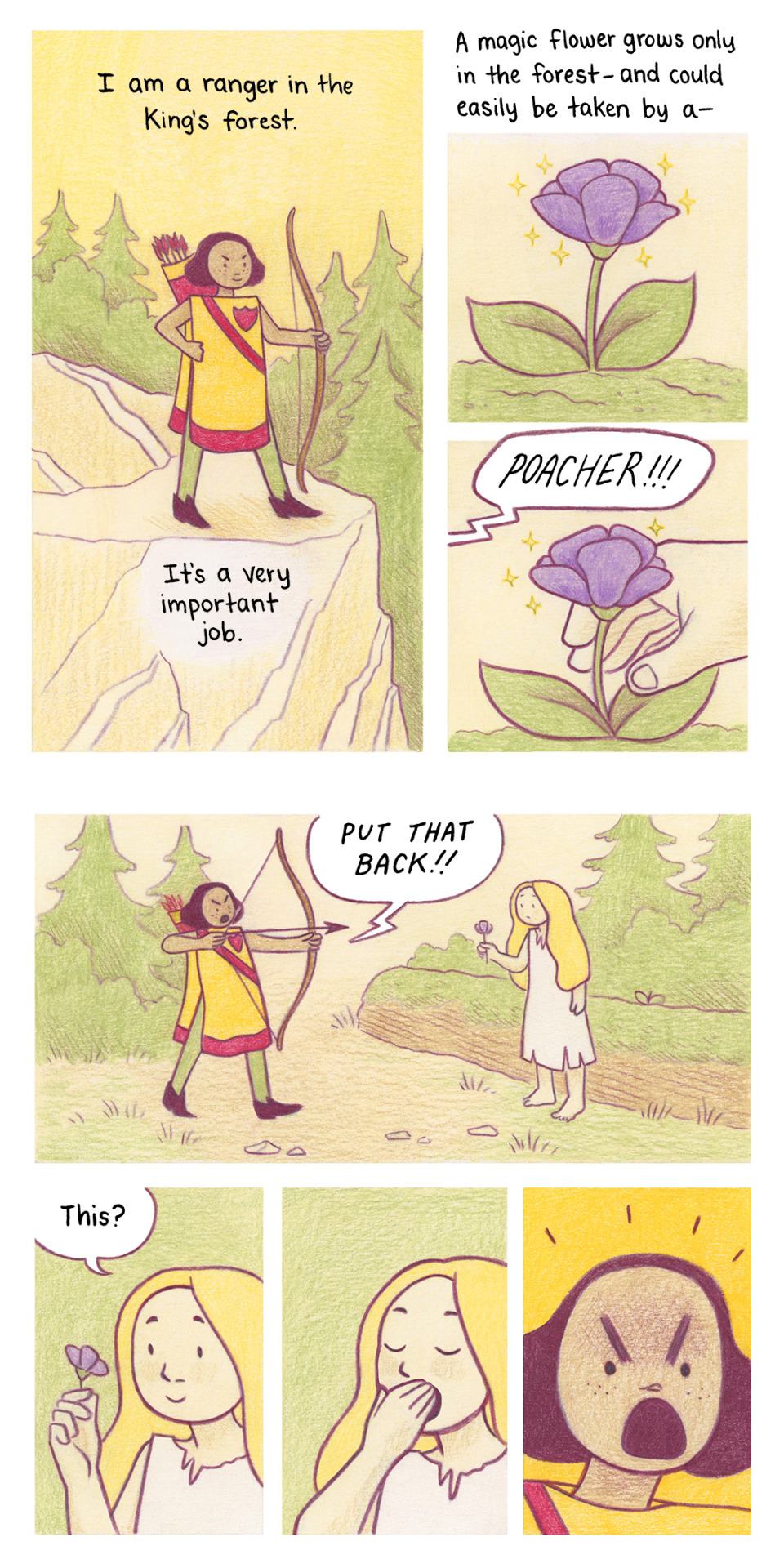
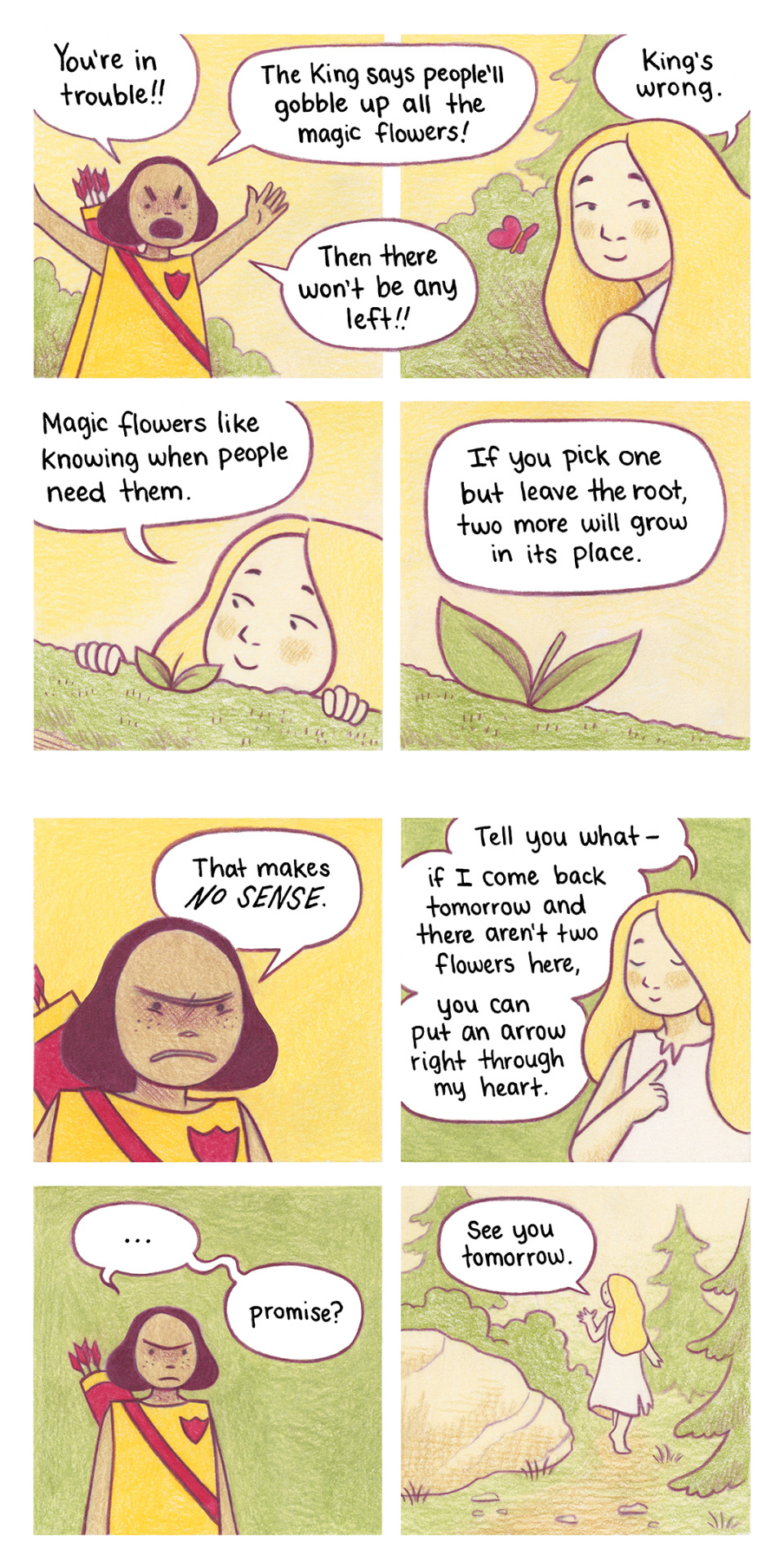
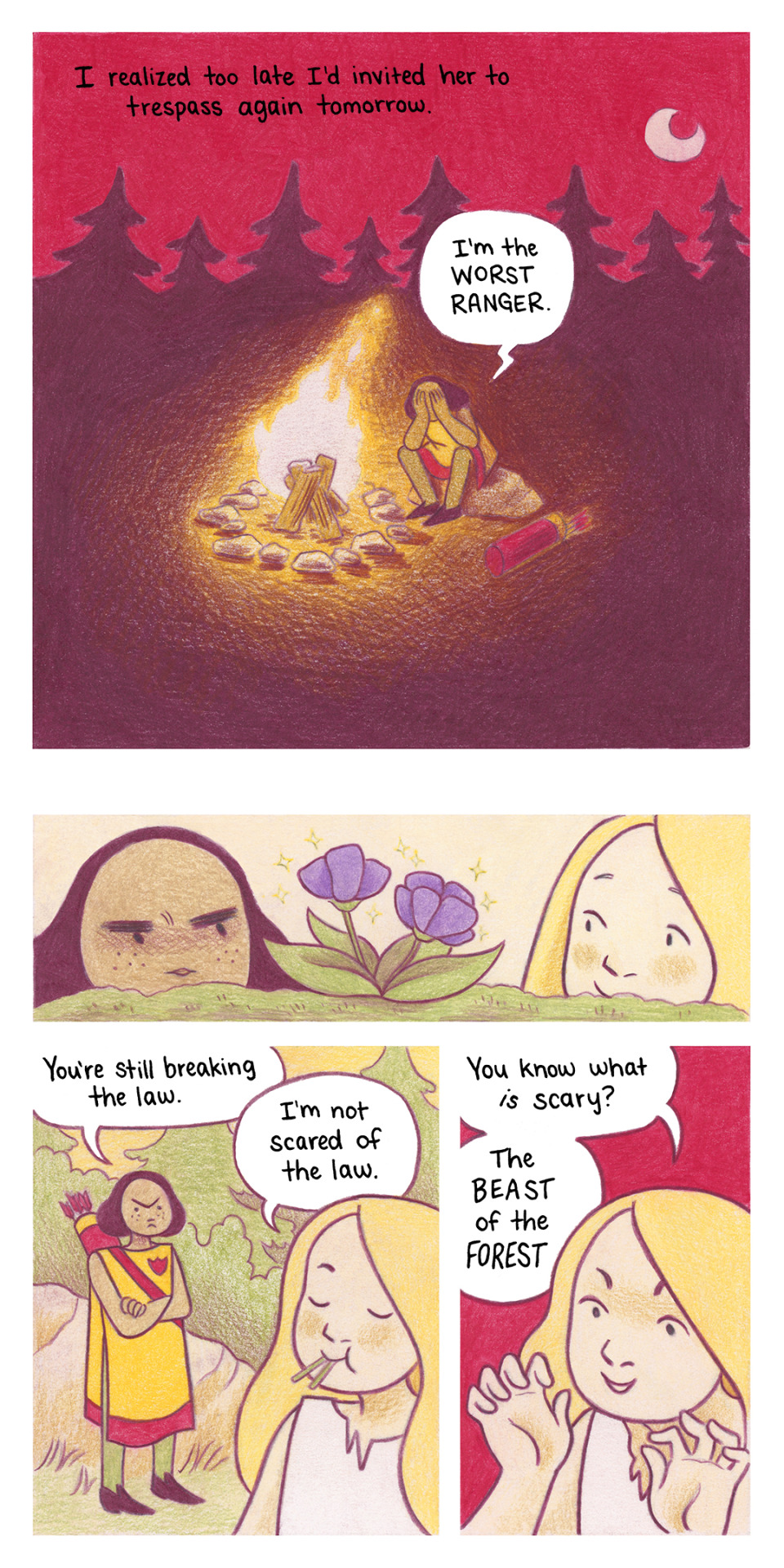
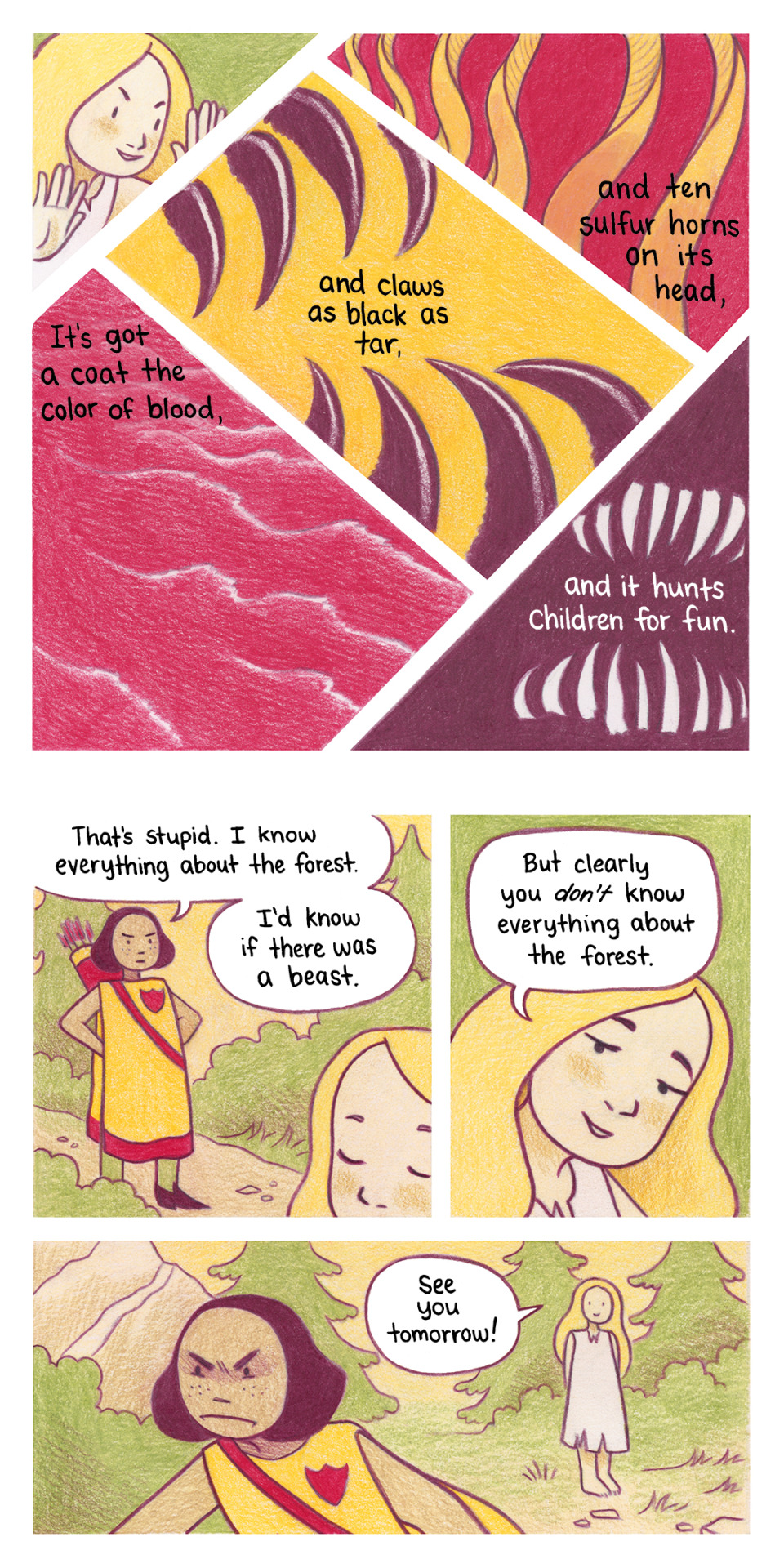
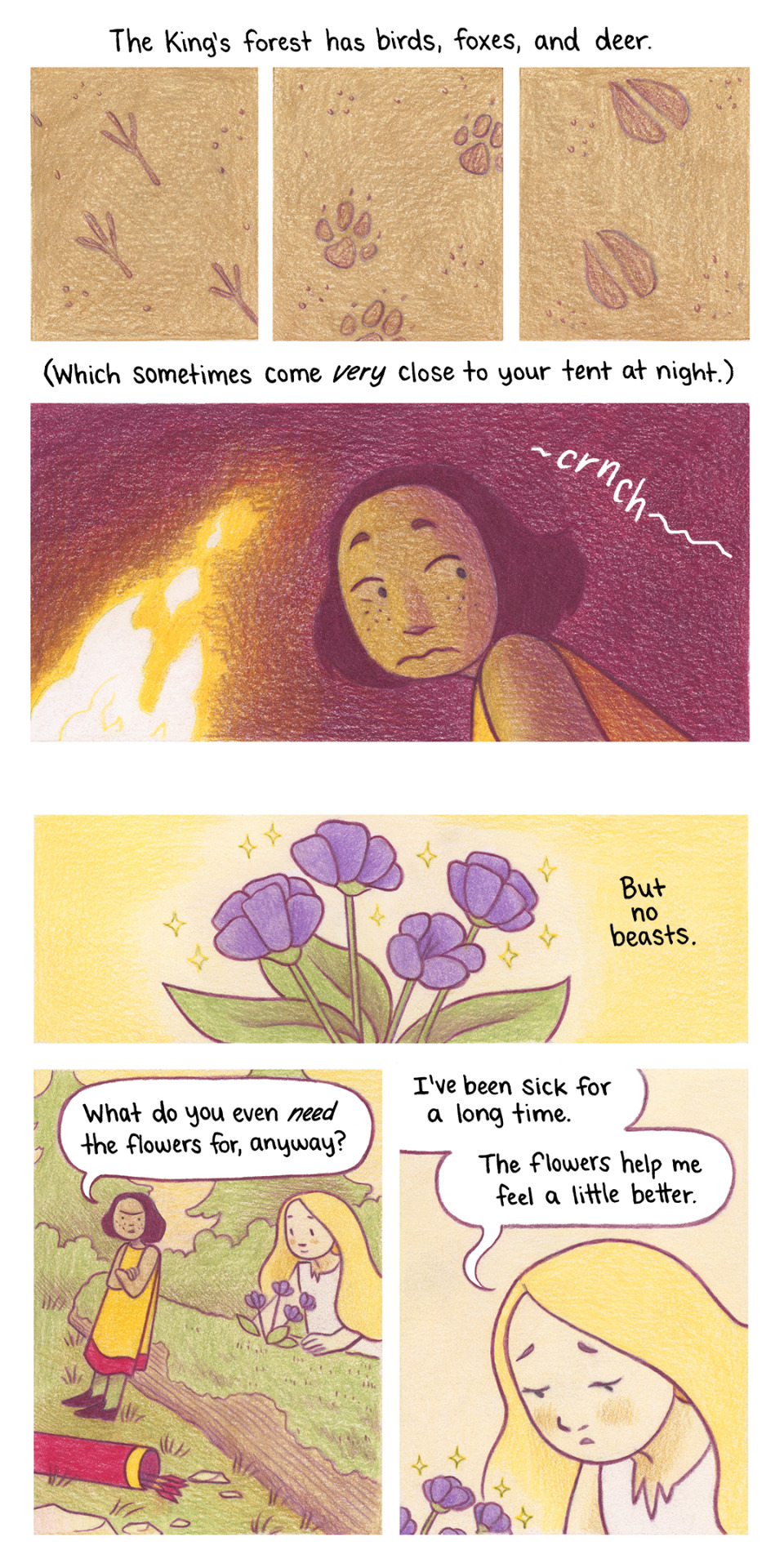
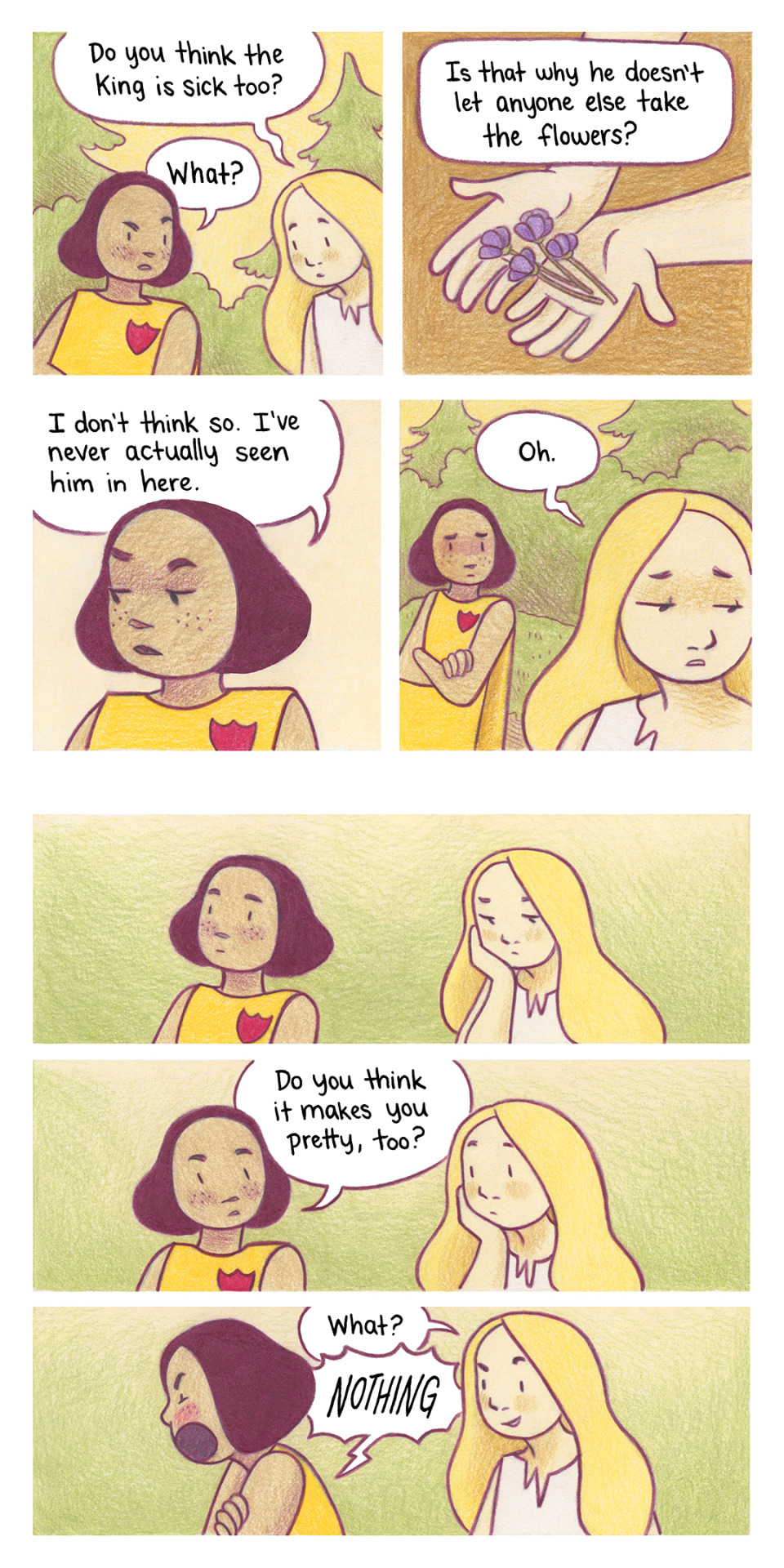
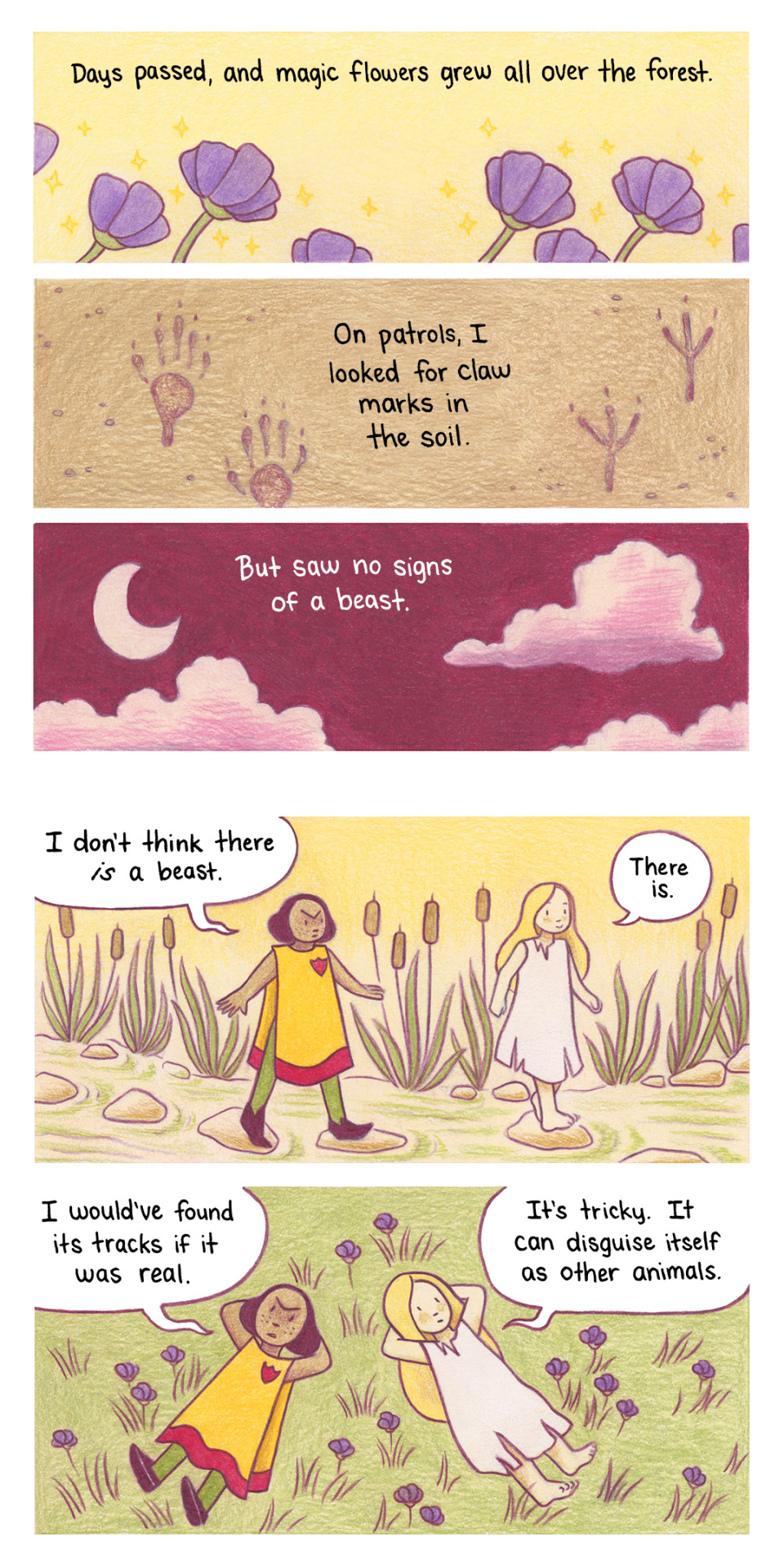
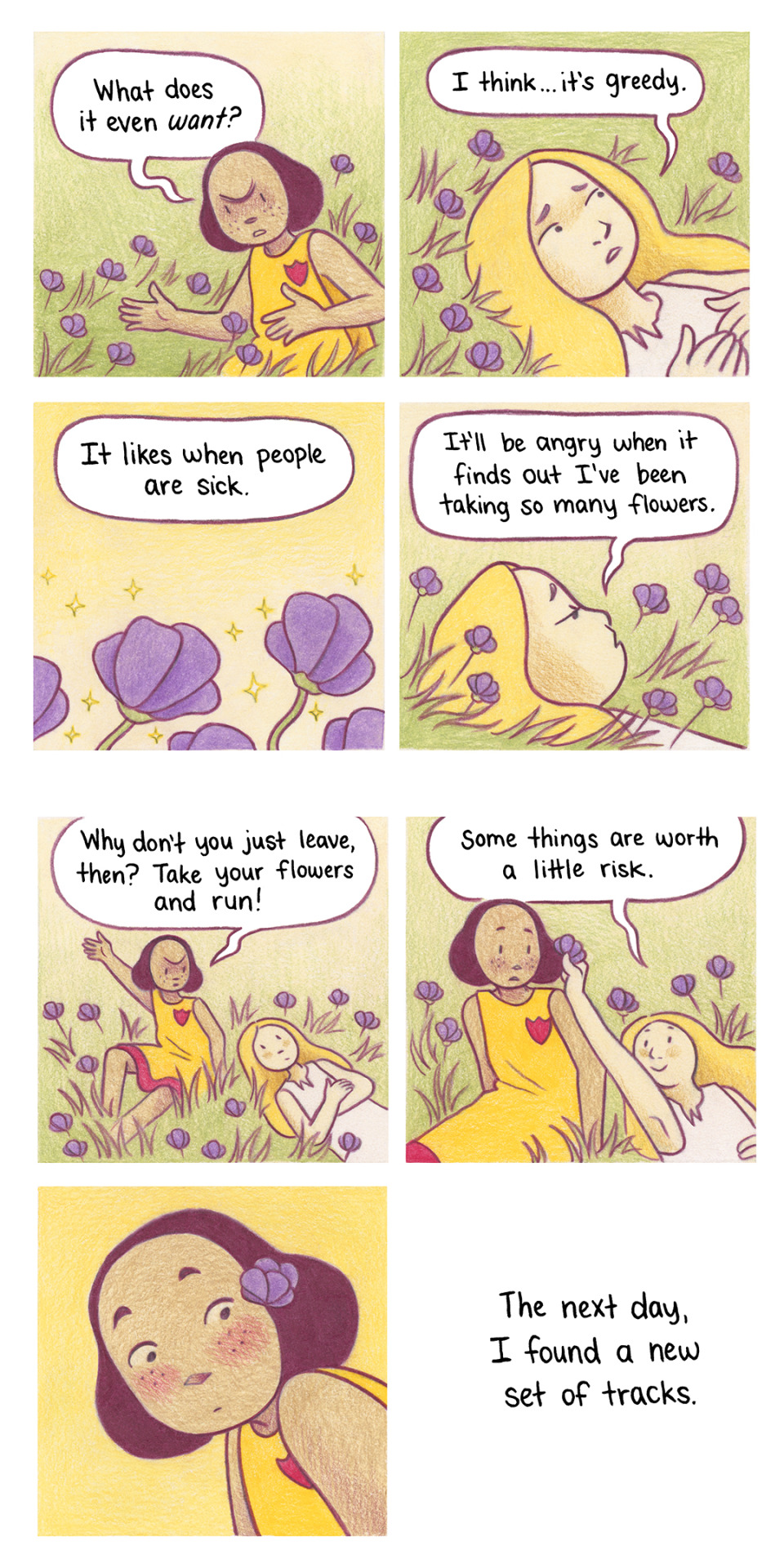
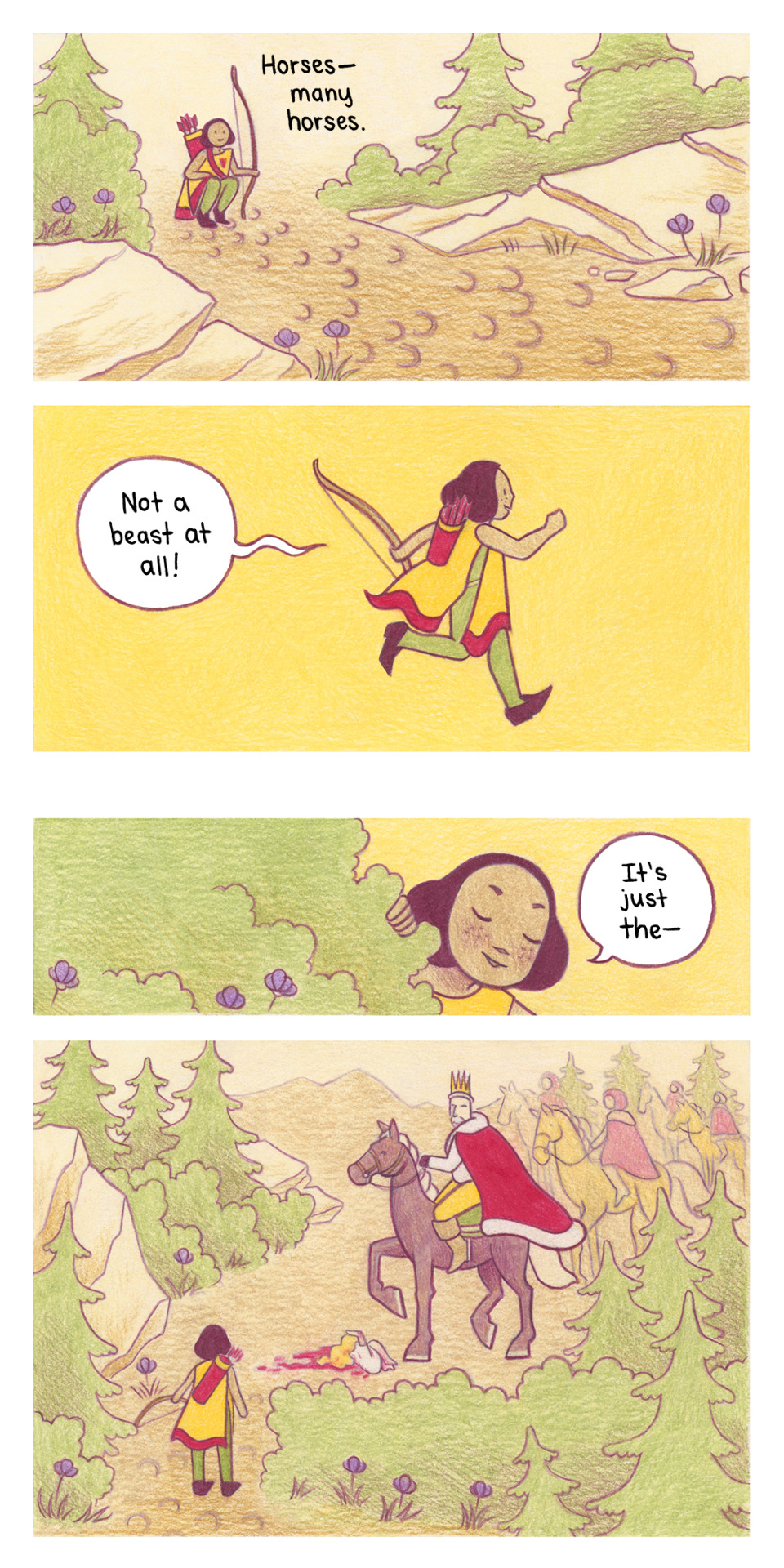
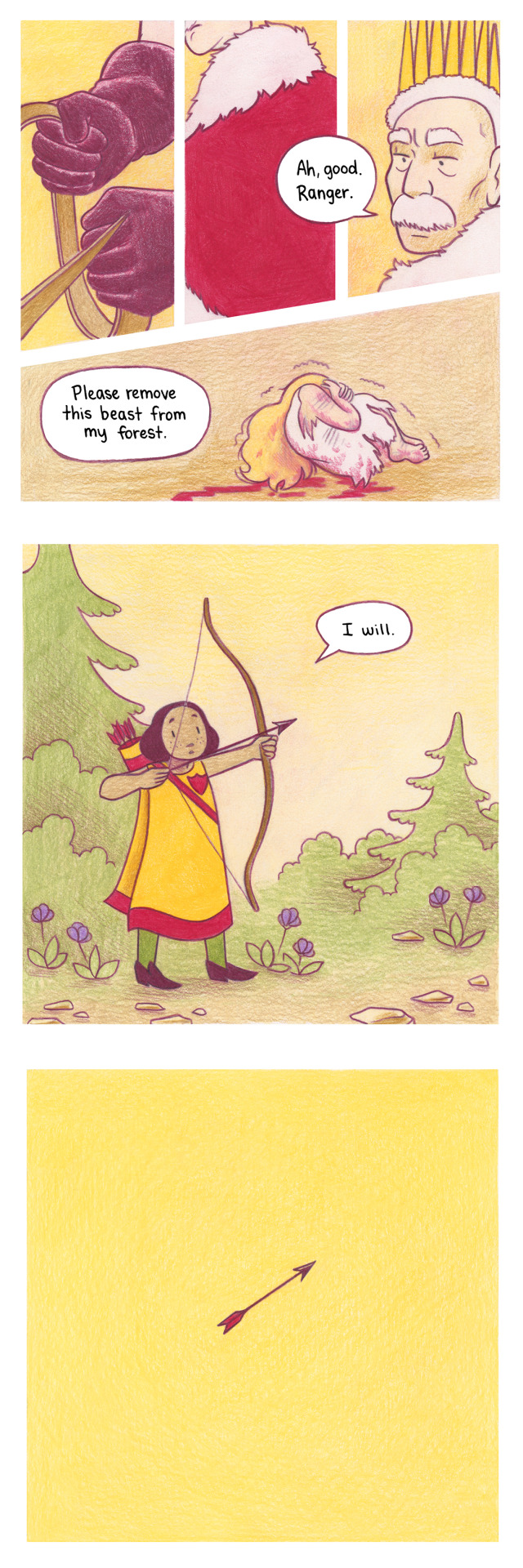
Here’s the new 24 hour comic I drew this year! This one is called THE KING’S FOREST. cw: blood, violence

A tree trunk throne in Kendall, England.
i want to talk about real life villains
Not someone who mugs you, or kills someone while driving drunk, those are just criminals. I mean VILLAINS.
Not like trump or musk, who are... cartoonishly evil. And not sexy villains, not grandiose villains, not even satisfyingly two dimensional villains it is easy to hate unconditionally. The real villains.
I had a client who was a retired executive for one of the big oil companies, i think it was Shell or Chevron. Had a home just outside of San Francisco that was wall to wall floor to ceiling full of expensive art. Literally. I once accidentally knocked a painting off the wall because it was hanging at knee height at the corner of the stairs, and it had a little brass plaque on it, and i looked up the name of the artist and it was Monet's apprentice and son-in-law, who was apparently also a famous painter. He had an original Andy Warhol, which should have been a prize piece for anyone to showcase -- it was hanging in the bathroom. I swear to god this guy was using a Chihuly (famous glass sculptor) as a fruit bowl. And he was like, "idk my wife was the one who liked art"
I was intrigued by this guy, because in the circles i run this dude is The Enemy. right? Wealthy oil executive? But as my client, he was... like a sweet grandpa. A poor widower, a nice old man, anyone who knew him would have called him a sweetheart. He had a slightly bewildered air, a sort of gentle bumbling nature.
And the fact that he was both of these things, a Sweet Little Old Man and The Enemy, at the same time, seemed important and fascinating to me.
He reminded me of some antagonist from fiction, but i couldn't put my finger on who. And when i did it all made sense.
John Hammond.
probably one of the most realistic bad guys ever written.
If you've only ever seen the movie, this will need some explaining.
Michael Crichton wrote Jurassic Park in 1990, and i read it shortly thereafter. In the movie, the dinosaurs are the antagonists, which imo erases 50% of the point of the story.
book spoilers below.
In the book, John Hammond is the villain but it takes the reader like half the book to figure that out. Just like my client, John is a sweet old man who wants lovely things for people. He's a very sympathetic character. But as the book progresses, you start to see something about him.
He has an idea, and he's sure it's a good one. When someone else dies in pursuit of his dream, he doesn't think anything of it. When other people turn out to care about that, he brings in experts to evaluate the safety of his idea, and when they quickly tell him his idea is dangerous and needs to be put on hold, he ignores his own experts that he himself hired, because they are telling him that he is wrong, and he is sure he is right.
In his mind, he's a visionary, and nobody understands his vision. He is surrounded by naysayers. Several things have proven too difficult to do the best and safest way, so he has cut corners and taken shortcuts so he can keep moving forward with his plans, but he's sure it's fine. He refuses to hear any word of caution, because he believes he is being cautious enough, and he knows best, even though he has no background in any of the sciences or professions involved. He sends his own grandchildren out into a life-threatening situation because he is willfully ignorant of the danger he is creating.
THIS is like the real villains of the world. He doesn't want anyone to die. Far from it, he only wants good things for people! He's a sweet old man who loves his grandchildren. But he has money and power and refuses to hear that what he is doing is dangerous for everyone, even his own family.
I think he's possibly one of the most important villains ever written in popular fiction.
In the book, he is killed by a pack of the smallest, cutest, "least dangerous" dinosaurs, because a big part of why we read fiction is to see the villains face thematic justice. But like a cigarette CEO dying of lung cancer, his death does not stop his creation from spreading out into the world to continue to endanger everyone else.
I think it is really important to see and understand this kind of villainy in fiction, so you can recognize it in real life.
Sweetheart of a grandfather. Wanted the best for everyone. Right up until what was best for everyone inconvenienced the pursuit of his own interests.
And my client was like that too. His wife had died, and his dog was now the love of his life, and she was this little old dog with silky hair in a hair cut that left long wispy bits on her lower legs. Certain plant materials were easily entangled in this hair and impossible to get out without pulling her hair which clearly hurt her. When i suggested he ask his groomer to trim her lower leg hair short to avoid this, he refused, saying he really liked her usual hair cut.
I emphasized that she was in pain after every walk due to the plant debris getting caught in her leg hair, and a simple trim could put an end to her daily painful removal of it, and he just frowned like i'd recommended he take a bath in pig shit and said "But she'll be ugly" and refused to talk about it anymore.
Sweet old man though. Everyone loved him.
-
 niftybottle reblogged this · 1 week ago
niftybottle reblogged this · 1 week ago -
 annoyingbasementphilosopher reblogged this · 1 week ago
annoyingbasementphilosopher reblogged this · 1 week ago -
 shadypinesma22 liked this · 1 week ago
shadypinesma22 liked this · 1 week ago -
 oswednesday liked this · 1 week ago
oswednesday liked this · 1 week ago -
 schneakyverene reblogged this · 1 week ago
schneakyverene reblogged this · 1 week ago -
 schneakyverene liked this · 1 week ago
schneakyverene liked this · 1 week ago -
 dantescandlestick liked this · 1 week ago
dantescandlestick liked this · 1 week ago -
 shanksandchivalry reblogged this · 1 week ago
shanksandchivalry reblogged this · 1 week ago -
 simauita reblogged this · 1 week ago
simauita reblogged this · 1 week ago -
 theolufem reblogged this · 1 week ago
theolufem reblogged this · 1 week ago -
 theolufem liked this · 1 week ago
theolufem liked this · 1 week ago -
 noneuclydian liked this · 1 week ago
noneuclydian liked this · 1 week ago -
 rey-gaywalker reblogged this · 1 week ago
rey-gaywalker reblogged this · 1 week ago -
 rey-gaywalker liked this · 1 week ago
rey-gaywalker liked this · 1 week ago -
 stephbanana reblogged this · 1 week ago
stephbanana reblogged this · 1 week ago -
 stephbanana liked this · 1 week ago
stephbanana liked this · 1 week ago -
 myheartisbro-ken reblogged this · 1 week ago
myheartisbro-ken reblogged this · 1 week ago -
 supervor reblogged this · 1 week ago
supervor reblogged this · 1 week ago -
 dreamsofdragonlilies reblogged this · 1 week ago
dreamsofdragonlilies reblogged this · 1 week ago -
 dreamsofdragonlilies liked this · 1 week ago
dreamsofdragonlilies liked this · 1 week ago -
 thebiafalex reblogged this · 1 week ago
thebiafalex reblogged this · 1 week ago -
 arsenicalbronze reblogged this · 1 week ago
arsenicalbronze reblogged this · 1 week ago -
 gremlintype reblogged this · 1 week ago
gremlintype reblogged this · 1 week ago -
 cookieemobster reblogged this · 1 week ago
cookieemobster reblogged this · 1 week ago -
 alucior liked this · 1 week ago
alucior liked this · 1 week ago -
 super-rangers reblogged this · 1 week ago
super-rangers reblogged this · 1 week ago -
 grounded-gryphon liked this · 1 week ago
grounded-gryphon liked this · 1 week ago -
 skyvoice reblogged this · 1 week ago
skyvoice reblogged this · 1 week ago -
 skyvoice liked this · 1 week ago
skyvoice liked this · 1 week ago -
 swordofwit liked this · 1 week ago
swordofwit liked this · 1 week ago -
 lavenderblendthoughts liked this · 1 week ago
lavenderblendthoughts liked this · 1 week ago -
 beanshery liked this · 1 week ago
beanshery liked this · 1 week ago -
 bluefancypants liked this · 1 week ago
bluefancypants liked this · 1 week ago -
 thearchdemongreatlydisapproves liked this · 1 week ago
thearchdemongreatlydisapproves liked this · 1 week ago -
 lilolilyr reblogged this · 1 week ago
lilolilyr reblogged this · 1 week ago -
 skyactually reblogged this · 1 week ago
skyactually reblogged this · 1 week ago -
 purlturtle reblogged this · 1 week ago
purlturtle reblogged this · 1 week ago -
 purlturtle liked this · 1 week ago
purlturtle liked this · 1 week ago -
 apples-n-all-that-jazz liked this · 1 week ago
apples-n-all-that-jazz liked this · 1 week ago -
 bobeau-beaubo reblogged this · 1 week ago
bobeau-beaubo reblogged this · 1 week ago -
 bobeau-beaubo liked this · 1 week ago
bobeau-beaubo liked this · 1 week ago -
 lilolilyr reblogged this · 1 week ago
lilolilyr reblogged this · 1 week ago -
 isuckattechnology reblogged this · 1 week ago
isuckattechnology reblogged this · 1 week ago -
 psychictrashmoon liked this · 1 week ago
psychictrashmoon liked this · 1 week ago -
 slightlycrackedteapot reblogged this · 1 week ago
slightlycrackedteapot reblogged this · 1 week ago -
 bookshoplaura reblogged this · 1 week ago
bookshoplaura reblogged this · 1 week ago -
 flootzavut liked this · 1 week ago
flootzavut liked this · 1 week ago -
 femmedefandom reblogged this · 1 week ago
femmedefandom reblogged this · 1 week ago -
 darkhorse-javert liked this · 1 week ago
darkhorse-javert liked this · 1 week ago -
 aquitainequeen reblogged this · 1 week ago
aquitainequeen reblogged this · 1 week ago